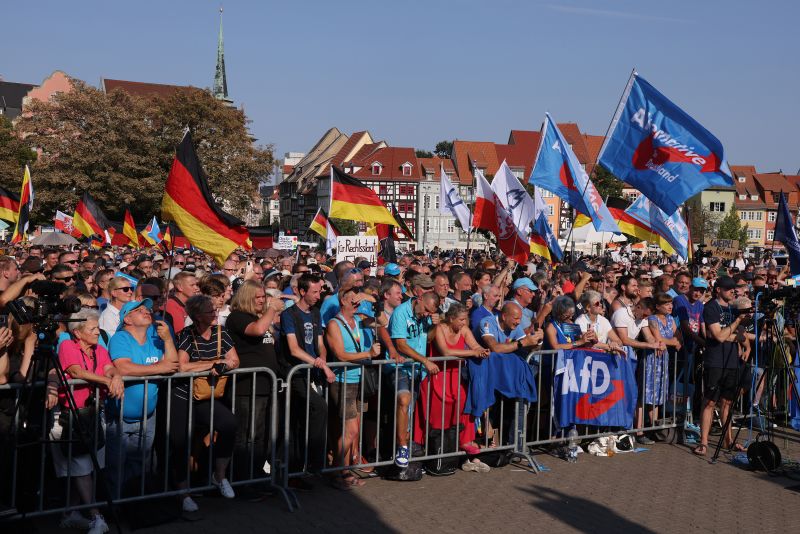
Breaking News: Far-right AfD Shocks Germany with Historic State Election Victory!
The recent victory of the Alternative for Germany (AfD) party in a German state election marks a significant milestone in the country’s political landscape. With AfD becoming the first far-right party to win a state election since 1945, the implications of this event are profound and warrant a closer examination.
The rise of AfD has been fueled by various factors, including dissatisfaction with mainstream political parties, concerns over immigration and identity, and a growing sense of economic insecurity among certain segments of the population. By tapping into these sentiments and presenting itself as a force for change, AfD has managed to attract a significant following, particularly in regions where traditional parties have struggled to address the needs and concerns of voters.
However, the success of AfD poses a number of challenges for Germany and the wider European political landscape. The party’s far-right ideology and populist rhetoric have raised concerns about the rise of nationalism and the erosion of democratic values. AfD’s anti-immigrant stance, in particular, has sparked debates about multiculturalism, integration, and the future of Germany’s social fabric.
Moreover, AfD’s victory in a state election signifies a shift in the political dynamics of Germany, which has traditionally been dominated by centrist parties. The emergence of a far-right party as a significant political player underscores the need for mainstream parties to reassess their strategies and engage with voters more effectively. It also highlights the importance of addressing the underlying causes of support for far-right movements, such as economic insecurity, social exclusion, and cultural anxieties.
In light of these developments, the success of AfD in the German state election serves as a wake-up call for politicians, policymakers, and citizens alike. It underscores the need for greater dialogue, understanding, and cooperation among different segments of society to address the root causes of political polarization and social fragmentation. It also highlights the importance of upholding democratic principles, respecting diversity, and safeguarding the rights of all individuals, regardless of their backgrounds or beliefs.
Ultimately, the victory of AfD in the German state election represents a watershed moment in the country’s political history. It signals a new chapter in the ongoing debate over national identity, cultural values, and the future direction of German society. As Germany grapples with the challenges posed by the rise of far-right populism, it is crucial for all stakeholders to work together in fostering inclusive, pluralistic, and democratic societies that uphold the principles of equality, justice, and human rights for all.
